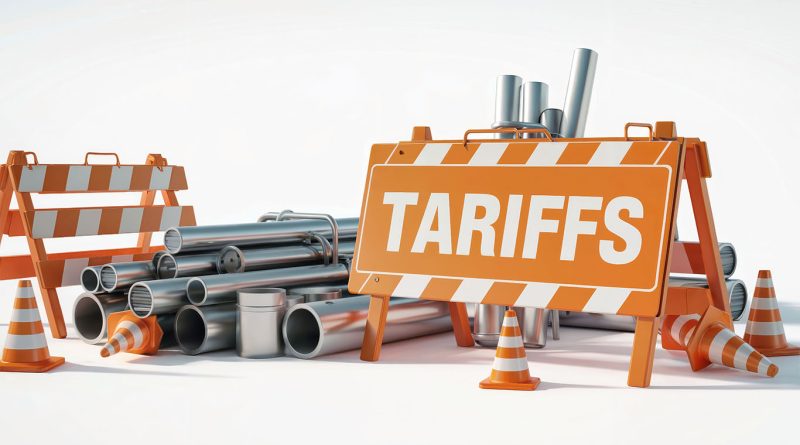Tariffs are Driving Up Construction Costs and Delaying Projects Nationwide
Subscribe to our free newsletter today to keep up to date with the latest construction news.
The Trump administration’s newly imposed tariffs on construction materials have sent shockwaves across the industry. Designed as a strategic economic measure, the tariffs have triggered consequences for builders, developers, and homebuyers alike. Steel, lumber, aluminum, and other core building materials have seen price hikes, forcing developers to rethink budgets, pause major projects, and reconsider the viability of new builds.
Steel and lumber prices hit new highs
Steel and lumber, fundamental to both residential and commercial construction, have borne the brunt of the new tariffs. According to the National Association of Home Builders, material costs have jumped by over 20 percent since the tariffs were announced. Analysts warn that the average price to build a new home has surged by approximately $11,000, a figure that could climb if trade tensions continue.
The impact extends beyond residential projects. Commercial contractors report double-digit increases in material budgets, disrupting profit margins and causing uncertainty in project forecasting. The increased cost of imported metals, combined with domestic supply shortages, has created a volatile environment where price quotes expire within weeks, forcing developers to lock in inflated rates or delay projects.
Project delays and cancellations sweep the industry
Developers across the country are halting billions of dollars worth of projects. A recent survey from Construction Dive revealed that nearly 60 percent of developers have either delayed or canceled projects due to material cost spikes and supply chain disruptions. Major urban centers, including Dallas, Atlanta, and Chicago, report slowdowns in the permitting and groundbreaking phases of both commercial and residential developments.
Some developers are choosing to scale down projects, opting for smaller, less material-intensive builds. Others are seeking alternative suppliers or shifting designs to rely on non-tariffed materials, though such adaptations bring financial and logistical challenges. Industry leaders predict that unless policy shifts occur, a prolonged construction slowdown could stretch well into 2026.
Housing market feels the squeeze with affordability at risk
As construction costs escalate, so do home prices. First-time buyers and middle-income families are particularly vulnerable. The $11,000 increase in average construction costs directly translates to higher listing prices, worsening an already strained housing market with limited inventory.
The pressure does not end there. Higher costs also dampen new housing starts, limiting future inventory and keeping competition fierce among buyers. Economists warn that unless new solutions emerge, these pressures could contribute to a sustained housing affordability crisis, especially in regions already struggling with high living costs.
Developers and contractors navigate the new normal
In response to the unpredictable landscape, developers and contractors are adopting new strategies. Some are renegotiating supplier contracts to lock in prices ahead of further tariff changes. Others are exploring prefabricated construction methods that minimize reliance on tariffed materials. Sustainability initiatives, such as utilizing recycled steel and locally sourced timber, are gaining traction as firms seek both environmental and economic resilience.
At the policy level, industry groups are lobbying for tariff relief or exemptions for construction materials. However, with the political climate remaining unpredictable, few expect quick resolutions. In the meantime, construction companies must balance cautious optimism with strategic risk management, knowing that flexibility and innovation will be crucial in navigating the months ahead. The construction industry stands at a crossroads, with tariff-driven pressures reshaping business models, timelines, and market dynamics.
Sources:
